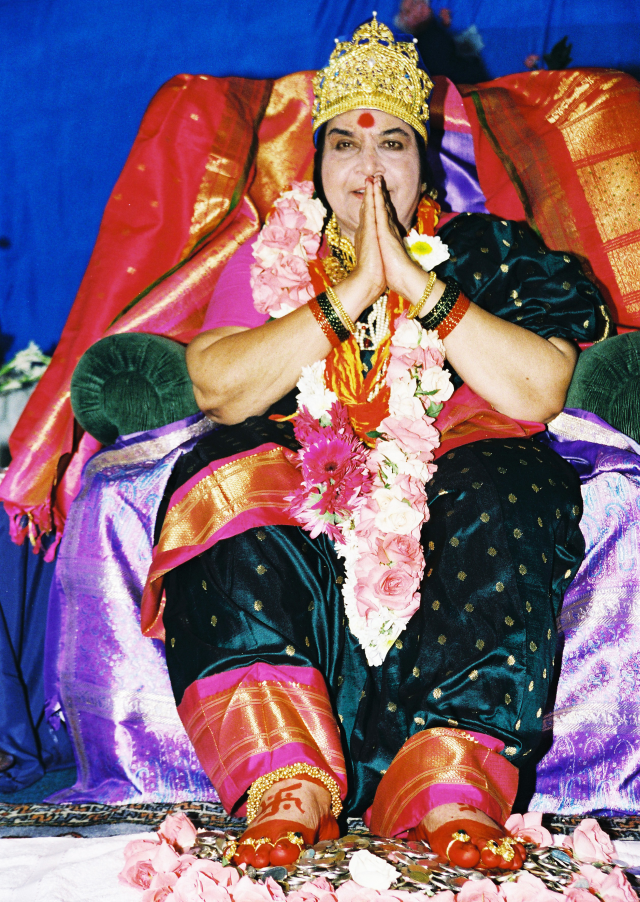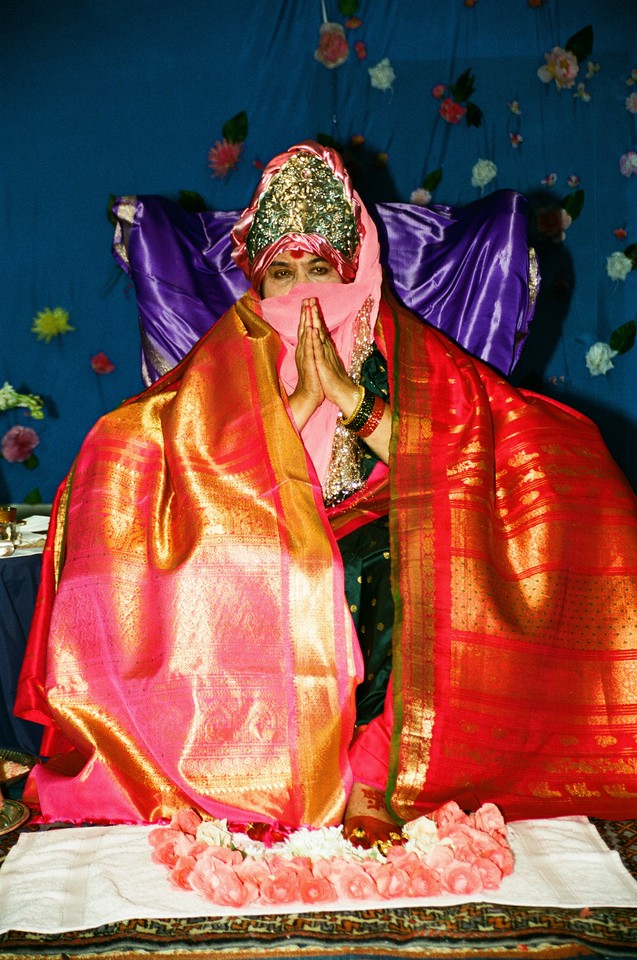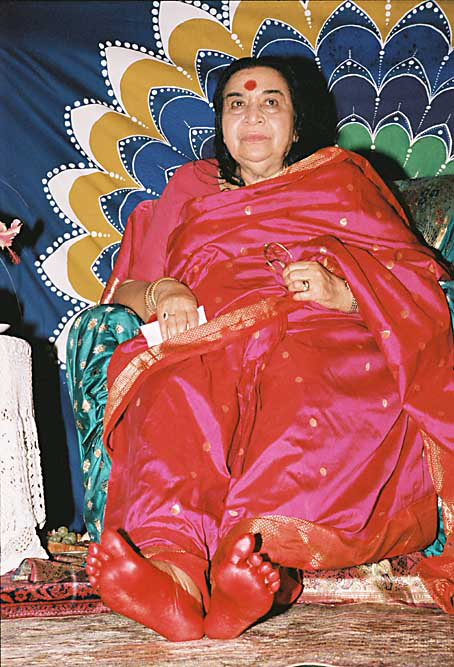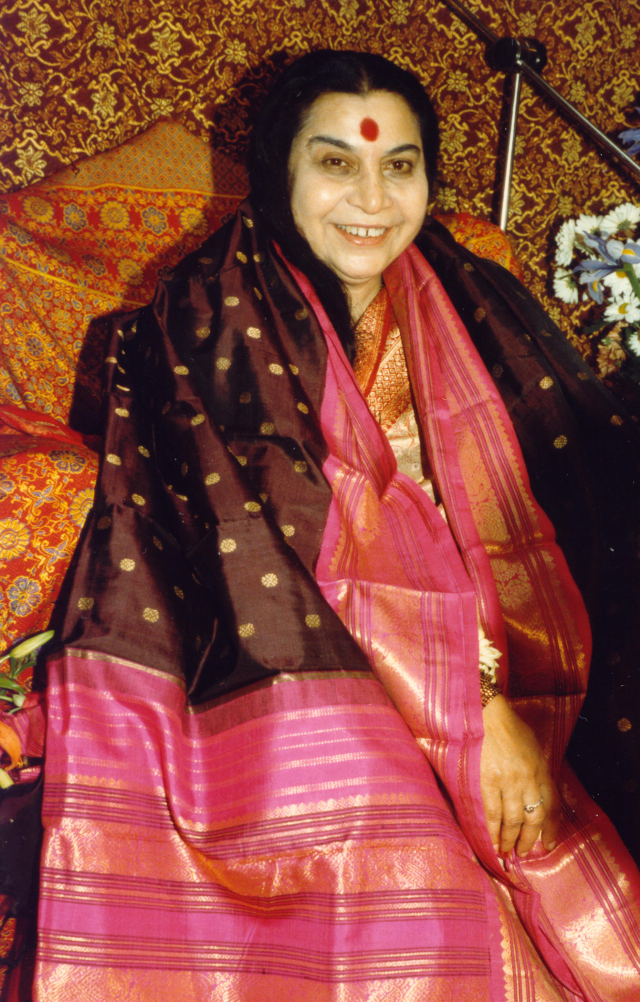2022 Celebrating the Festival of Diwālī: “yourself such beautiful instruments of Rājalakṣhmī that people when they will see you they will vote for you and tomorrow you will rule the world.”

"Nothing is rigid. Rigidity comes from ignorance.
It's all for you, for your joy and happiness. The whole festival system is for your happiness and not for the happiness of the time or date. It's for you, so it should be adjustable according to your needs and understanding. And also according to your national way you live. They should be no addiction to any particular type of culture, a particular type of ideas. It's all for you. All these festivals are for you, not for Gods. They don't have these festivals. It's only for you people these festivals are there. And when you celebrate them, that's only for your joy and your happiness. And that's how you should celebrate in a way that gives you the greatest amount of happiness. And the festivals, all the festivals of the world must be celebrated. The more you are festive, the happier it is. Why miss the chance, you see."
1981-1101 Diwālī Pūjā (5th day after Diwālī Day), The Mahālakṣhmī Powers and the Powers of Water, Āśhram, 44 Chelsham Road, Clapham, London, UK

"Now today is the Pūjā – as you know there are five days they celebrate Diwālī.
The first day is the thirteenth day where it is the gṛuhalakṣhmī’s day, that is the day when the gṛuhalakṣhmī is worshiped."
1983-1106 Diwālī Pūjā (Bhāūbīj Day), Become the Ideals (Unless and Until You Become Your Ideals You Are Not a Sahaja Yogi), Temple of All Faiths, Hampstead, London, UK
Śhrī Mātājī: Ahaṃ sākṣhāt Gṛuhalakṣhmī, Ahaṃ sākṣhāt Gṛuhalakṣhmī, Ahaṃ sākṣhāt Gṛuhalakṣhmī, Ahaṃ sākṣhāt Gṛuhalakṣhmī, Ahaṃ sākṣhāt Gṛuhalakṣhmī -- ah!
1980-0313 Public Program, The Meaning of Sahaja Yoga, Caxton Hall, 10 Caxton Street, Westminster, London, UK
"The first day of Diwālī is called as Dhanatrayodaśhī: is the thirteenth day of the Moon. Because that day is the first day when Lakṣhmī, the first ... was born on the thirteenth day. That means She was born as a Gṛuhalakṣhmī, as a housewife.
Now there are eight Lakṣhmīs, which she will read it out. And I will tell you later on what is the meaning of all [them]. So one of them is Gṛuhalakṣhmī.
So the first is the form of a Gṛuhalakṣhmī. She is born as a Gṛuhalakṣhmī, to begin with. That means the awareness, of human beings also, started really getting into evolutionary process when they started their family life. When they were vagabonds, moving about, then the awareness was just like animals. Though they had become human beings, but they were like animals. Then when they established their families, then the Gṛuhalakṣhmī started working and that's how the first Advent of Gṛuhalakṣhmī was felt.
So She is the first Lakṣhmī who was born, and that's why on that thirteenth day is the day of the Gṛuhalakṣhmī, of the housewife. And so, one has to go in the market and buy some utensils or something that she uses for cooking in the house. In India on the thirteenth day everyone goes and buys a pot or, say, we can say, what you call, a cooking utensil or something. Or they may buy a sāṛī or something or gold or something for the gṛuhalakṣhmī. That is the day of the housewife.
So, to reach the Lakṣhmī one has to understand that motherhood is very important. The motherhood as a gṛuhalakṣhmī is important."
1980-1109 Diwālī Pūjā (Bhāūbīj Day), The Mahālakṣhmī Power, Temple of All Faiths, Hampstead, London, UK

"Gṛuhalakṣhmī is the Deity of the Family, the One who’s the Deity of the Family. ...... The Deity of the Household, if She resides in you, then you are Gṛuhalakṣhmī, otherwise, you are not."
1987-1025 Diwālī Pūjā (3rd day after Diwālī Day), Power of Innocence, Meaning of Nine of the Lakṣhmīs, Lecco (50 kms N of Milan on Lake Como), Italy
"Fāṭimah ...... was the Embodiment of Gṛuhalakṣhmī."
"Today women have gone weaker so the men have also become weak and powerless. Till the purity and loving mother-like qualities develop in a woman the Gṛuhalakṣhmī Śhakti does not get awakened in her. But she should be wise. Gṛuhalakṣhmī has to be wise and intelligent. So we can say that when this Mahākālī Śhakti gets cool and peaceful it becomes Gṛuhalakṣhmī.
We believe in the Power of Fāṭimah as perfect Gṛuhalakṣhmī and she should sit on the Throne of Gṛuhalakṣhmī. By this Power of Mahākālī, a woman can correct her children. She keeps her character pure and we are witness that the pativrata, women’s devotion towards her husband cannot be destroyed by anything because it is her śhakti. People and negativities are afraid of pativratā women. Also, the husbands should understand that the power within them is from the śhakti, their wife."
1994-1211 Śhrī Ādi Śhakti Pūjā (Hindi), Mahāmāyā, Mahākālī, Śhāradā Devī, Mahālakṣhmī, Jaipur, Rajasthan, India
"Fāṭimah Bi, who was the symbol of Gṛuhalakṣhmī. And so we are going to have the Pūjā of the Gṛuhalakṣhmī Principle within us.
...... Now, the Principle of Gṛuhalakṣhmī has been evolved and developed by the Divine, it’s not a human beings’ creation. And as you know, it resides in the left Nābhī. The Gṛuhalakṣhmī is the one that is represented in the life of Fāṭimah who was the daughter of Muhammad Sāhab. Now She is always born in a relationship to a Guru which is of virginity, of purity. So She comes as a sister or She comes as a daughter.
...... It’s a very beautiful thing how the Mahālakṣhmī Tattwa of Sītā took a form of Viṣhṇumāyā just to establish the beautiful Principle of a Housewife."
1988-0814 Śhrī Fāṭimah Pūjā, Saint-George (40 kms W of Lausanne), Switzerland

"Gṛuhalakṣhmī is the woman who should know that she has the great responsibility of creating a very great society of Sahaja Yoga."
1991-0428 Śhrī Haṃsa Chakra Pūjā, The Source of Discretion, Queens, New York City, NY, U.S.A.
Bolo Śhrī Gṛuhalakṣhmī sākṣhāt Śhrī Ādi Śhakti Mātājī Śhrī Nirmalā Devī kī jay!
"The significance of Diwālī is spread out in about five days.
And they are all together somehow, these five days are all put together. So they have different aspects, but in every aspect, there’s one common point is that the Goddess plays the main role."
1992-1025 Diwālī Pūjā (Diwālī Day), Sala Olimpia (Olympia Sports Hall), Timişoara, Romania
Śhrī Lakṣhmī Welcome Song 1987
video
Pavan Utsav ayya re
video
Hasat Ali
video
Kanakadhara Stotram
video
Aṣhṭa Lakṣhmī Storam
video
Lakṣhmī Ali
video

"Today is a very interesting day when you are worshiping the Gṛuhalakṣhmī here, with the Gṛuhalakṣhmī of this house. In the same way, in your families, also in your houses, homes, you must do gṛuhalakṣhmī’s pūjā. The woman has to be a gṛuhalakṣhmī herself, and then she should be worshiped. “Yatra narya[stu] pujyante tatra ramante Devatā." “Where the women are respected and worshiped, there reside all the Deities.” But they should be respectable also. If they are not respectable, then the Deities won’t reside there. It’s a big responsibility on a Gṛuhalakṣhmī to be the respectable so that all the Deities are happy in the family. And once she is respected, she will try to be respectable also. So, the respect of the gṛuhalakṣhmī is very important."
1985-0818 Śhrī Gṛuhalakṣhmī Pūjā, House, 48 Brompton Square, Knightsbridge, London, UK
Jai Śhrī Mātājī!
Wishing you all a very joyous Diwālī Festival and a Happy Dhanateras!
On behalf of the festivity team!